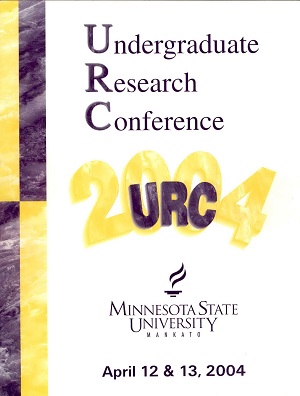The Two Revolutions: How the Nazis Accepted, Co-opted, and Rejected Einstein's Theories of Relativity
Location
CSU 253
Start Date
13-4-2004 8:45 AM
End Date
13-4-2004 10:15 AM
Student's Major
History
Mentor's Name
Larry Witherell
Mentor's Department
History
Mentor's College
Social and Behavioral Sciences
Description
To the Nazis, Albert Einstein was the definition of a nemesis—a Jew, a pacifist, an internationalist, and an intellectual. While his work went against the dogma of the regime, it became apparent that the "abstract" theoretical science associated with Jewish scientific thinkers such as Einstein was necessary for the Nazi's military. The regime chose to allow teaching of "Jewish physics" in 1938 at the same time Kristallnacht mobilized the Germans against the Jews. This is the story of the development of anti-Semitism in German science, its politicization, and the efforts undertaken to save theoretical physics in the Third Reich. Utilizing memoirs of both scientists and Nazi figures, biographies and other secondary scholarship, this project reveals the confrontation between the Nazi regime's political and military needs and its own horrible racialism.
The Two Revolutions: How the Nazis Accepted, Co-opted, and Rejected Einstein's Theories of Relativity
CSU 253
To the Nazis, Albert Einstein was the definition of a nemesis—a Jew, a pacifist, an internationalist, and an intellectual. While his work went against the dogma of the regime, it became apparent that the "abstract" theoretical science associated with Jewish scientific thinkers such as Einstein was necessary for the Nazi's military. The regime chose to allow teaching of "Jewish physics" in 1938 at the same time Kristallnacht mobilized the Germans against the Jews. This is the story of the development of anti-Semitism in German science, its politicization, and the efforts undertaken to save theoretical physics in the Third Reich. Utilizing memoirs of both scientists and Nazi figures, biographies and other secondary scholarship, this project reveals the confrontation between the Nazi regime's political and military needs and its own horrible racialism.




